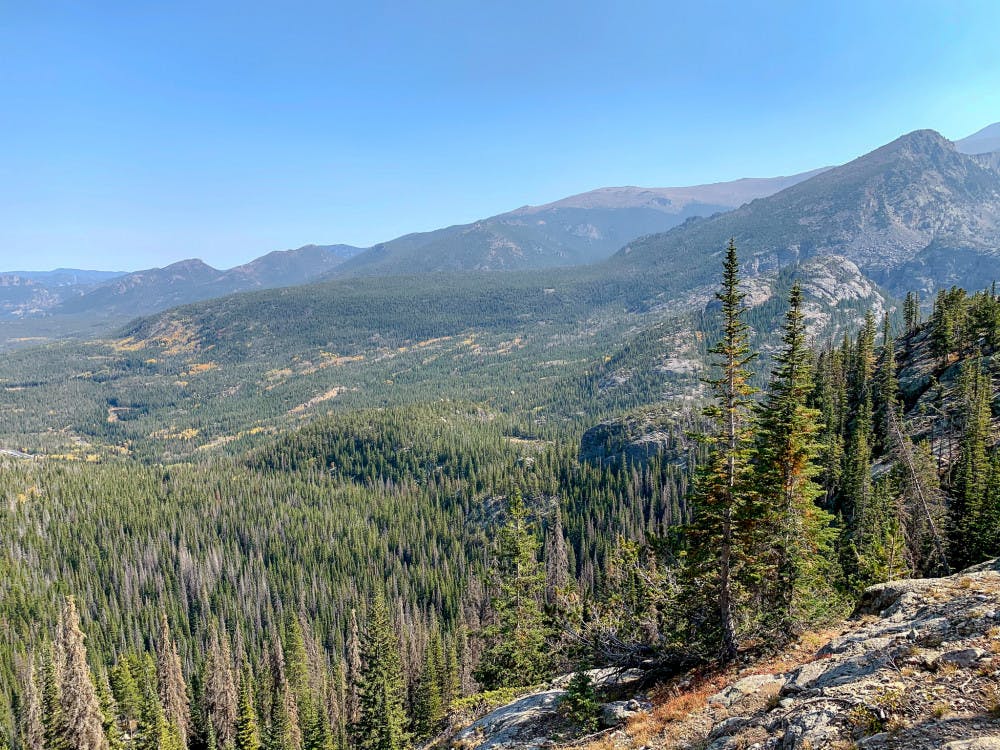Historic red brick buildings jammed with students sharing one large communal shower and sleeping in high-raised twin XL beds — this environment usually comes to mind when thinking about the college experience, not a classic suburban home in a small town in northern New Hampshire home to students taking classes remotely.
But this semester, residing in pods outside the Providence area has become reality for some Brown students.
Nearly 200 miles away from College Hill, Ethan Chung ’22 and Liam Bai ’22 are living in a pod in a rented Airbnb with four other juniors who are all taking classes remotely.
The friends spend their days sitting together around the dining room table during their Zoom classes, playing spikeball and going on runs and hikes.
Brown students aren’t the only ones podding with friends far from campus this semester: it’s happening throughout the country.
Had Chung not formed a pod with his friends, he still would not have returned to College Hill this fall due to hesitations about living on campus amid public health restrictions and COVID-19 concerns.
Chung sees the University’s reopening this semester as “a test ride,” which informed his decision to pod away from campus. He said his decision was also motivated by wanting “a change of pace” from being at home with his parents and siblings.
For Bai, the decision to not return to campus was primarily based on apprehension over a potential spread. He and his family were “really concerned” about how the University would handle the arrival of more students from different parts of the country and the world.
Bai, an international student from China who has remained in the United States since Brown closed its campus in March, was also concerned about risking his health and not being able to return to America if he flew home.
The friends chose their location in Bethlehem, New Hampshire because they were looking for somewhere they would not risk infection but still be able to engage in outdoor group activities, Bai said.
Chung added that it was also important to find a place in the Northeast, since that was where most of the pod members already were.
Out west in Estes Park, Colorado, William Marella ’23 formed a pod with two other leave-taking students from Brown and a student from George Washington University for the month of September.
Marella said that his decision to go to Colorado was “pretty spontaneous.” He had planned to spend the semester helping his father with his company while on leave when Marella’s friend invited him to come to his family’s house.
“I think the stars just kind of aligned for that house to be open and available for us at that date,” Marella said.
In Colorado, Marella’s days involved helping his father remotely, as well as hiking and enjoying group dinners and late-night hang-outs with his pod.
Marella planned to stay in Estes Park for three to four weeks, since that was the time the house was available for the pod, and it was as long as he could go without working in-person at his father’s company.
But their pod had to leave for Denver a day early due to three wildfires that broke out nearby, Marella said.
Still, Marella said that he treasured the time he spent in Colorado because it allowed him to work while reconnecting with friends. “To be able to take leave and still be with students was nice, very refreshing,” Marella said.
In the beginning, Marella was hesitant about living in a house with other people his age because he had never done it before, but he was very happy with the experience. The time he spent living in a pod brought him closer to the friends he already had in ways that dorm living would not have done, Marella added.
“It’s so different from dorm living. You need to do dishes, clean the kitchen, make food and see each other 24/7, (which) basically requires a certain level of attentiveness to those people that you don't really get at college,” Marella said.
Chung said that there are “a lot more responsibilities” associated with living in a house with pod members. He added that it is also less private than living with his parents, since the pod’s house is not very big and they are interacting with each other almost all day.
But, Chung said that living in a pod in a remote location offers a sense of safety that he would never be able to feel on campus.
“I am happier here than I would have been at Brown,” Chung said. On campus, he said he would have had more stress “in the back of his mind” because of “the concern of (COVID-19) and the hassle I would have to go through with testing twice a week.”
Bai said that living in a pod allows him to still bond with friends and maintain a feeling of normalcy while remaining safe.
“It’s sort of the best of both worlds in the sense that returning to campus is a bit of a risk and this sort of allows me to still maintain some social contact with my friends” Bai said.

ADVERTISEMENT




